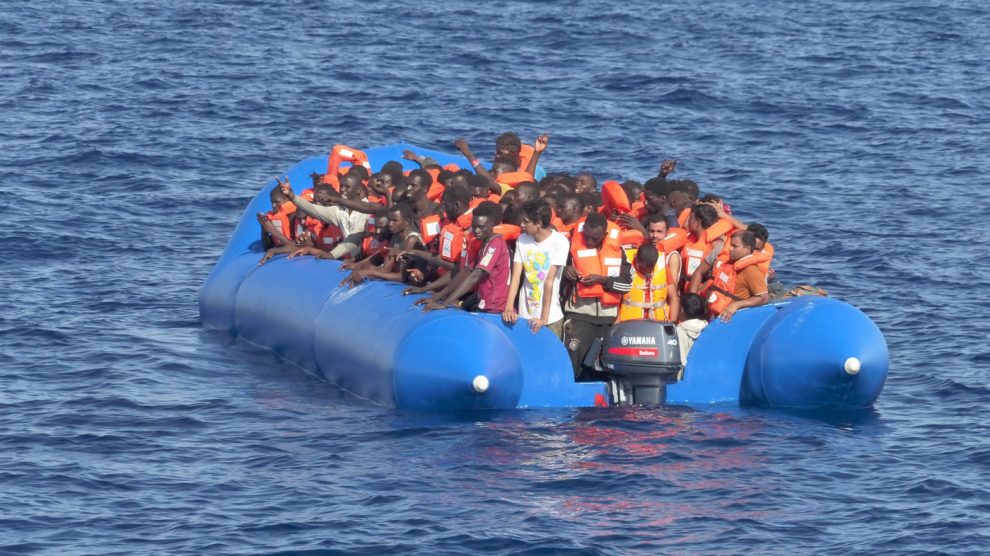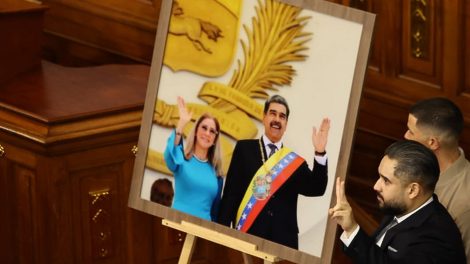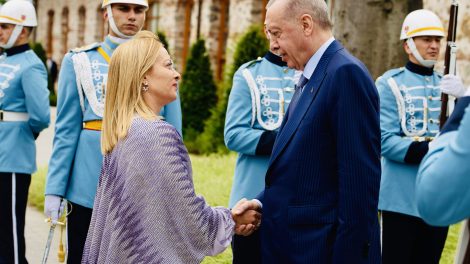Rome and NGOs tussle. Migration is again a flashpoint issue for Italy, as its new right-wing government seeks to take a much stricter stance on border control by clashing with non-governmental organisations carrying rescued refugees to Italian ports.
- Interior Minister Matteo Piantedosi signalled the change of pace shortly after taking office by warning NGO ships (and their country of provenance) that they would no longer be allowed to disembark on Italian turf.
- Over the past few weeks, he made good on that promise and refused to grant two NGO ships access to Italian ports. During the past weekend, he allowed them to dock in Catania – but only to disembark people that Italian medical officials deemed “vulnerable”.
The numbers. As of Monday, 572 rescued migrants (more than half of those rescued since October 20) are still being held aboard four NGO ships and denied access to Italian soil. In that same period, according to the Ministry of the Interior, almost 11,000 people landed through small, undetectable boats. In other words – as estimated by ISPI’s Matteo Villa – roughly 11% of migrants arrive in Italy via NGO ship.
- The expert also noted that this year’s migrant intake would increase to 100,000 people. That number is smaller than the all-time peak in 2017 (nearing 200,000) but marks a steady increase from the lows of 2020 (less than 25,000).
- This rise, writes Mr Villa, comes “at a difficult time for Italy,” which is “on the brink of recession and in an energy crisis, and already fatigued by the Ukrainian crisis. In one year, the number of people in reception increased by 36%.” That’s 27,000 more than in 2021.
Kind of a flashback. The government-NGO clash is making headlines as if it were 2018, when the League’s Matteo Salvini (currently Minister of Infrastructure) was Minister of the Interior and followed the same essential playbook – although he was less quick in granting humanitarian aid to vulnerable people, which caused him to be put on trial. That’s still ongoing.
- Minister Piantedosi, who was Mr Salvini’s Chief of Staff at that time, seems ready to walk the same line while avoiding these judiciary issues.
- On the other hand, NGOs look set to confront the government in court – with the German NGO SOS Humanity already appealing to Rome’s Administrative Regional Tribunal.
Meloni & Salvini praise the pope. On Sunday, the pope praised the government’s efforts to let women and children disembark. He also said that any government “cannot do anything without agreement at the European level and European responsibility,” and called on member States to agree on how many migrants they can receive, stating that only four countries – Cyprus, Greece, Italy and Spain – are shouldering that weight.
- Prime Minister Giorgia Meloni endorsed the pope’s stance. “We always listen with great attention to the words of the Holy Father, which are a perennial warning to wisdom and charity,” she wrote in a note, “[a]nd we want to thank him sincerely for his encouragement and especially for his call for national and international concord.”
- Mr Salvini, too, thanked the pope for his words, “We save and will always save lives, but Italy cannot be left alone. We have difficult months ahead, and we cannot let 100,000 people land irregularly,” he said, stressing the need for “enforcement” and reiterating that the principle by which “a ship carrying a German flag is German territory” must be “reapplied”.
What’s the endgame? In the government’s broader scheme, this approach is most likely geared at pressuring EU member States to aid Italy on this issue. Help could come via burden-sharing and relocations (which are still voluntary within the EU) and/or EU support for more assertive patrolling actions in the Mediterranean (i.e. Europe’s Southern border), which PM Giorgia Meloni called for in her inaugural speech.
- However, as Mr Villa notes, the member States that help Italy the most through relocations are also on the NGO’s flags: Germany, France, and Ireland. Hungary, Poland and other Eastern European countries (whose leaders, incidentally, are among Ms Meloni’s European allies) have shown far less solidarity in aiding Italy.
- Still, Hungarian PM Viktor Orbán said that “we owe a big thank you” to her government “for protecting the borders of Europe”.
- Furthermore, to yield results in Europe and lead to a systemic solution, Mr Piantedosi’s strategy will have to transition to dialogue and coordination with other member States. That might not be easy, given that human rights are on the line – and that both Berlin and Paris already rebuked Rome over the issue.





